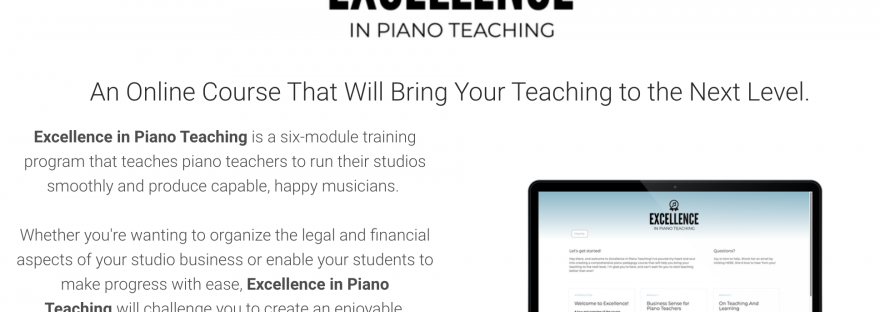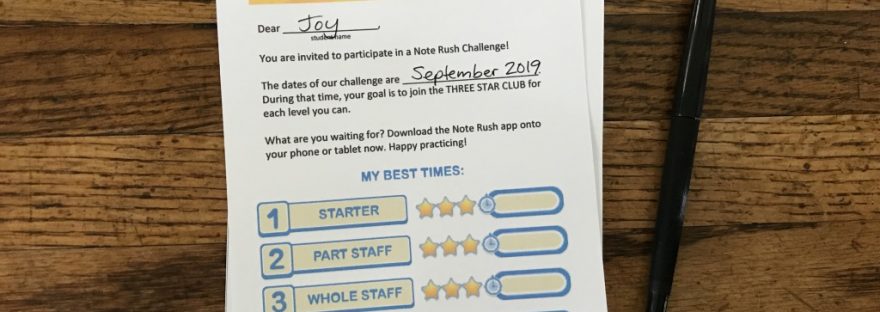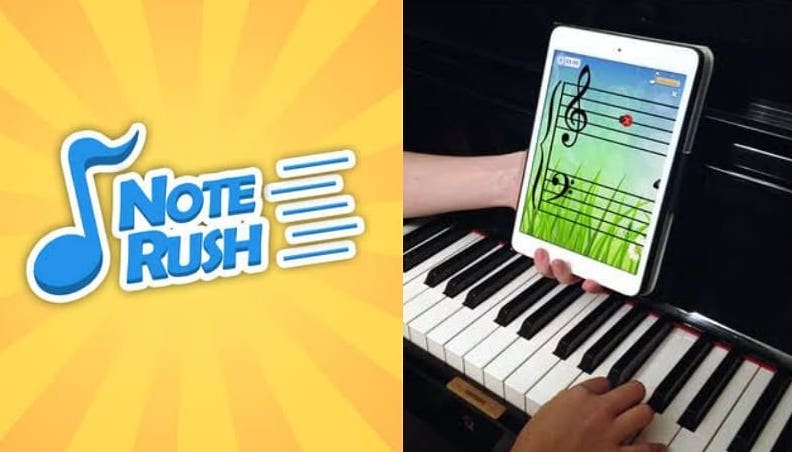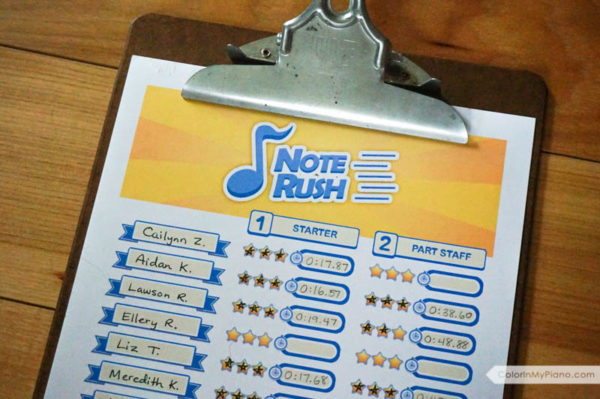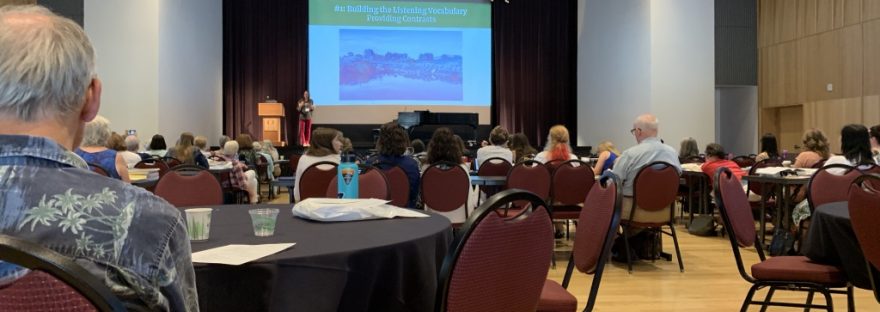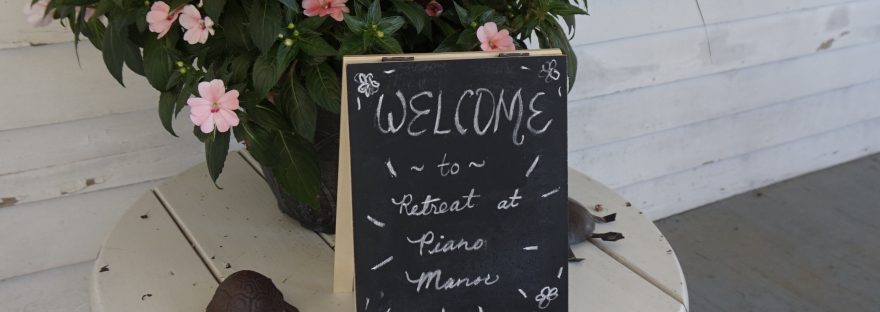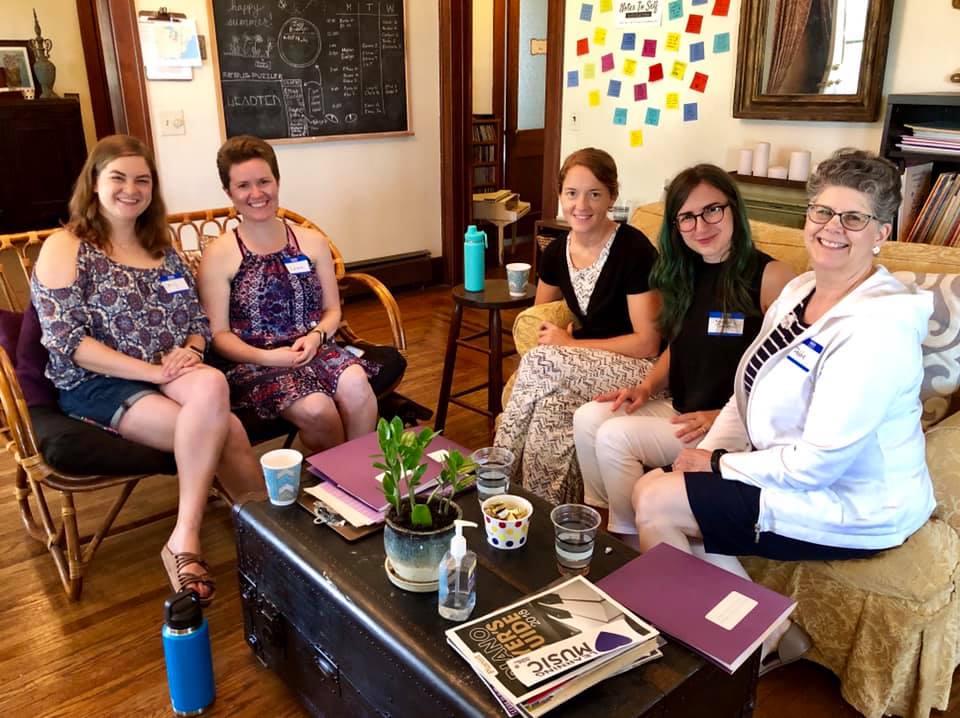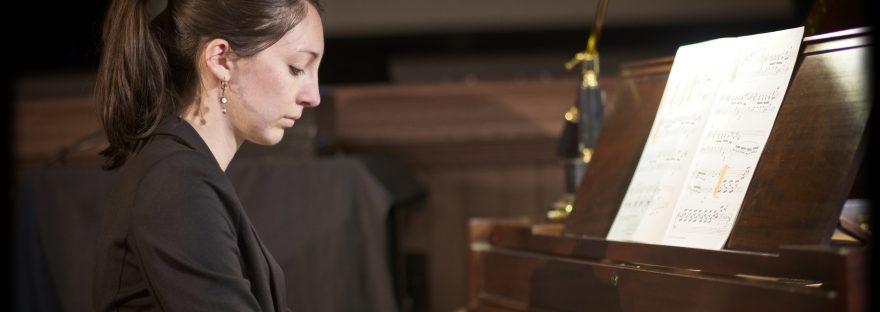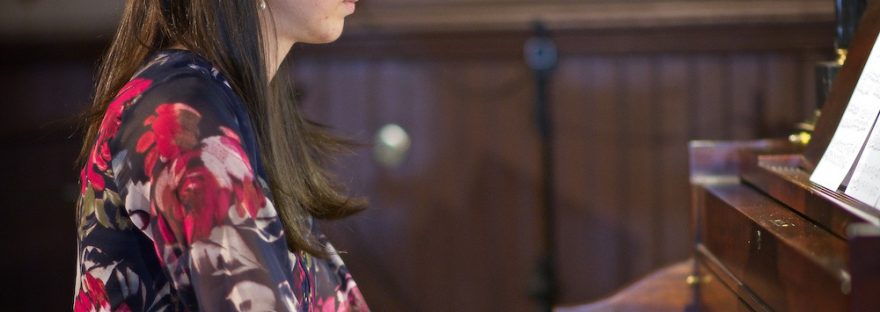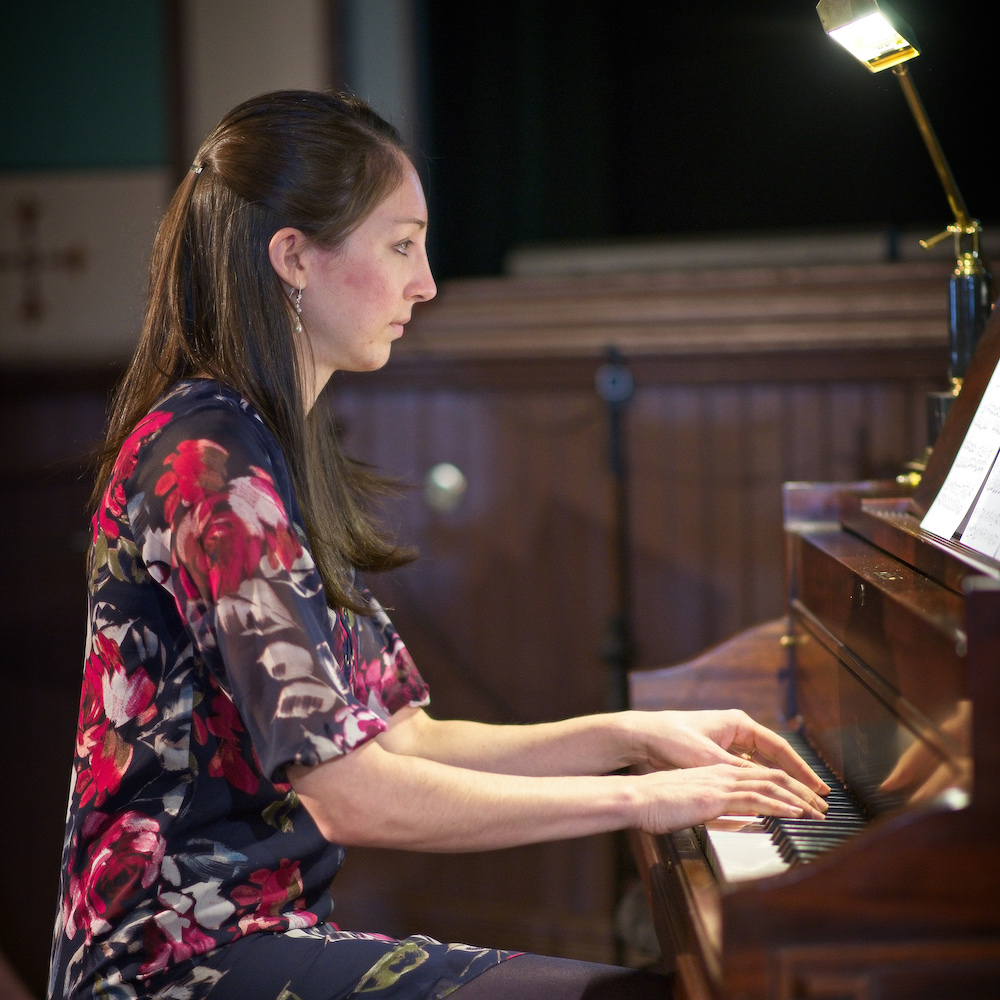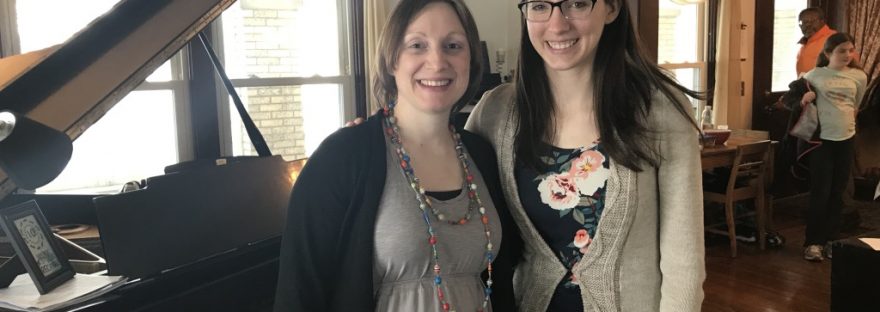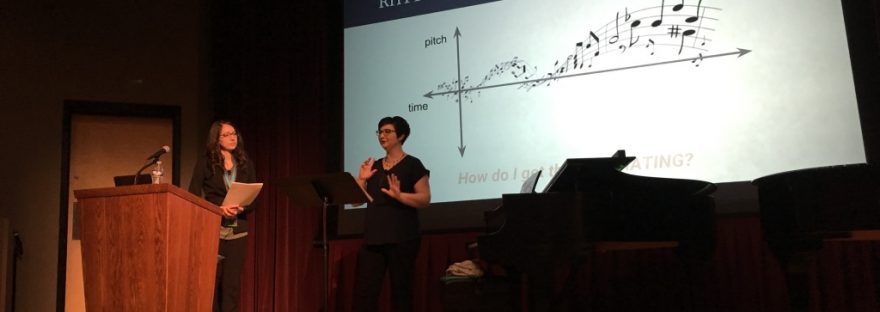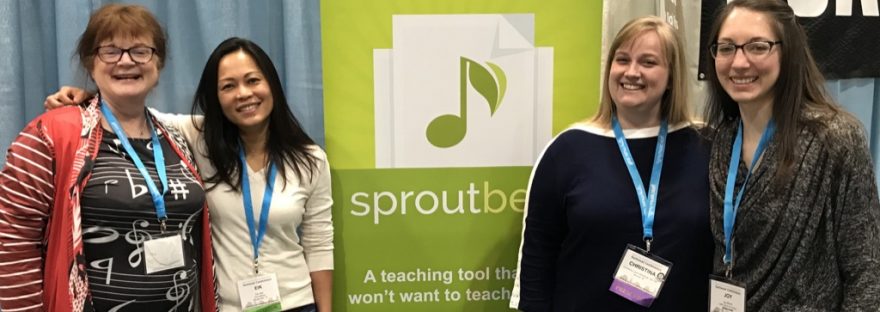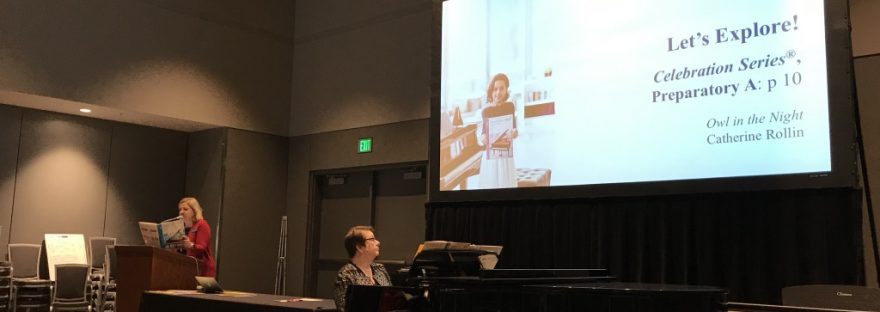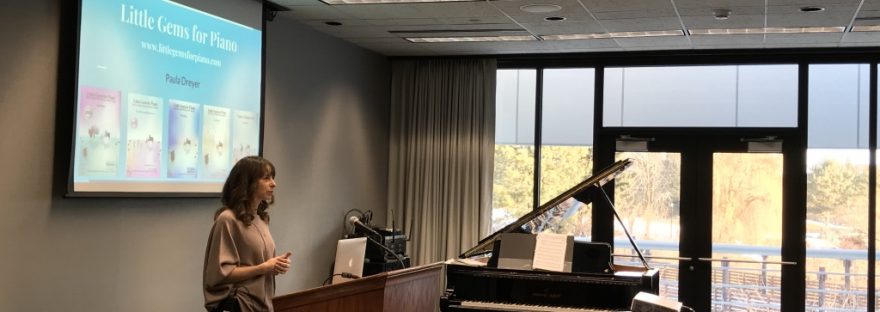Hi there! Just a quick post today…
How would you like to take a piano pedagogy course from the comfort of your own home?

The next offering of my six-week course, EXCELLENCE IN PIANO TEACHING starts up very soon! It will run October 7 – November 18, 2019. Here’s a peek at what you’ll learn each week:
- Business Sense. We’ll get your finances organized so you can focus on the part we all love most: teaching!
- On Teaching and Learning. You’ll learn how to maximize student learning through teaching strategies that are research-based and time-tested.
- Conducting the Piano Lesson. You’ll learn how to plan for and use in-lesson time in a way most conducive to student success.
- All About Piano Methods. You’ll learn the purpose, benefits, and limitations of piano method books and become familiar with the today’s most popular method books.
- Piano Technique for Beginners. You’ll learn how to nurture your students towards playing the piano healthily, efficiently, and – most importantly – expressively.
- The Student’s Repertoire. You’ll learn how to choose piano literature for your students that is appropriate and suitable so they are happily advancing in their piano studies!
Here’s a video overview and a peek inside the course, so you can see if the [Excellence in Piano Teaching] course is right for you.
Intrigued? Visit the Piano Teacher Institute with Joy Morin website and be sure to join the email list there! Registration links will be emailed out soon.
Thanks for reading!


